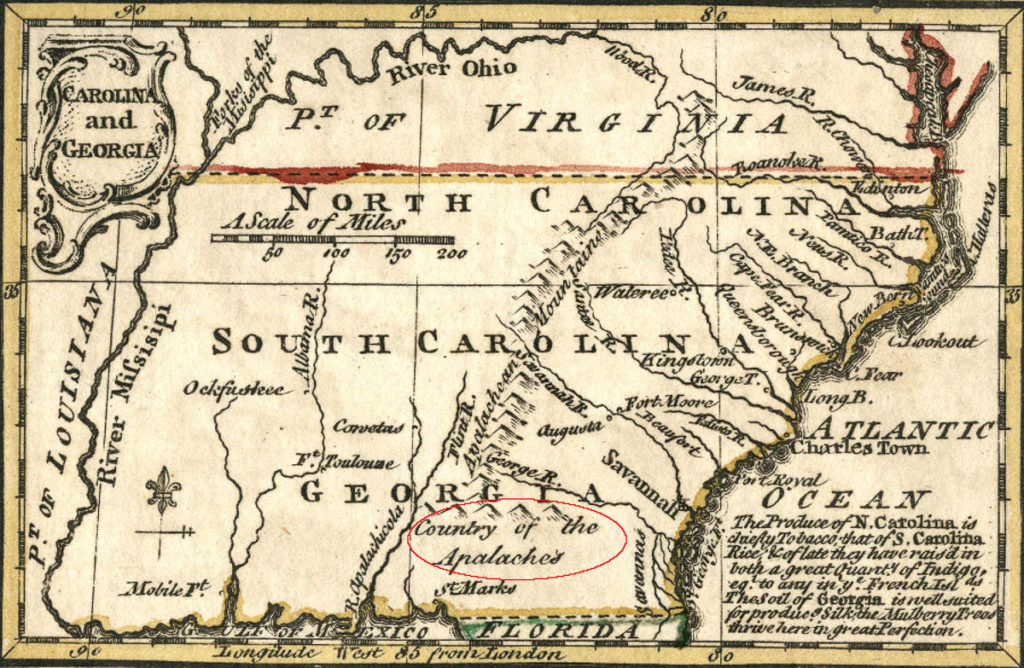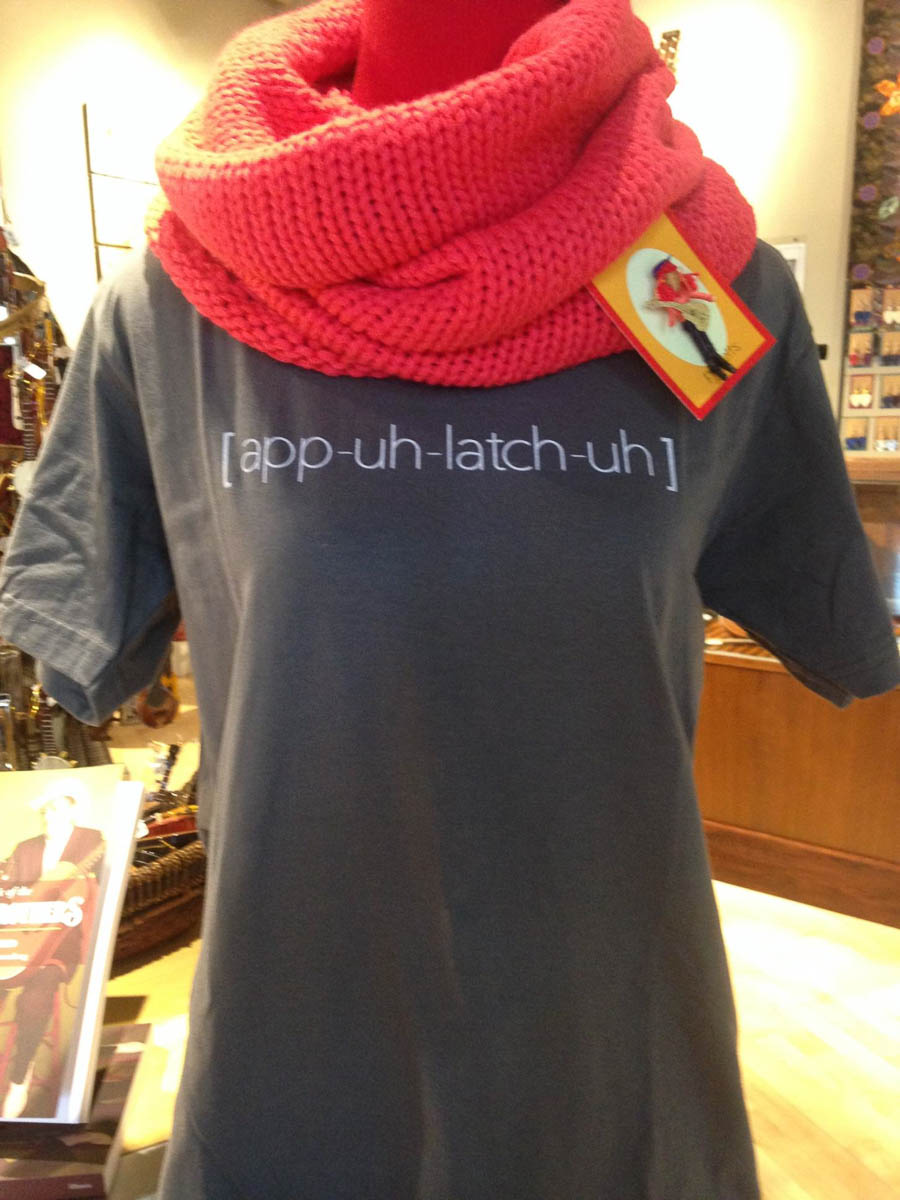Yes, both are correct, but here is why I urge you to still say “App-uh-latch-uh.”
It’s something that has caused perhaps nearly as many arguments as politics. No one has (hopefully) ever gotten into an argument about whether or not they ordered a “car-mel” or “care-ah-mel” latte, but disagreements about Appalachia can become very heated very easily. Appalachia has several different pronunciations across the United States, but the two most common (and contentious) are “App-uh-latch-uh” and “App-uh-lay-shuh.” The former has traditionally been linked with the south, while the latter is more associated with the north.
![The photograph show a display mannequin showcasing a grey t-shirt, red scarf, and musician brooch. The t-shirt has the word [app-uh-latch-uh] on it.](https://birthplaceofcountrymusic.org/wp-content/uploads/2021/06/Appuhlatchuh-tee-768x1024.jpg)
Soon after the museum opened, we sold t-shirts that spelled out the “correct” pronunciation of Appalachia – it generated debate from our visitors and also 435 shares on the related social media post! © Birthplace of Country Music
So, who is right? To quote writer John Green: “The truth resists simplicity.” Both ways are correct, but which way you choose to say it can say more about you than you may realize.
Much like its pronunciation, the etymology of the word “Appalachia” is also debated. Before the Europeans arrived in North America, the Appalachian Mountains and their geographical components had a multitude of names. The Cherokee or Tsalagi called the Smoky Mountains Shaconage. Algonquin-speaking peoples called the White Mountains in New Hampshire Wobanadenok. To the Powhatan of eastern Virginia, the Blue Ridge Mountains were known as Quirank. The first people to live in the region were all independent nations with different languages and cultures. It wasn’t until later that the entire mountain range was grouped as a single region.
The consensus is that the current name derives from “Apalachee” (App-uh-latch-ee), the Spanish romanization of the name of a Native American people that lived in the Florida Panhandle, though exactly upon which expedition the Spanish encountered these Indigenous people is debated. Either way, variations of the name – such as “Apalachen” – began appearing on Spanish maps of the area in the 1560s. By the 1700s, the name was used to refer to the southern section of the mountain range, and the name “Appalachia” was eventually used for the entire mountain range by the end of the 19th century.

A map from the mid-1700s with “Country of the Apalaches” and “Apalachean Mountains” labeled. Found on http://www.virginiaplaces.org/geology/appalachians.html, source: David Rumsey, Historical Map Collection, Carolina and Georgia (by Emanuel Bowen and John Gibson, 1758)
Southern Appalachia and Northern Appalachia may share a general geographical continuity, but could not be more different regarding culture, accents, and media portrayal. Popular media often makes a mess of the south, frequently portraying it as feral, uneducated, and backward. The way we speak appears to be particularly hard for Hollywood to nail down. Take, for example, Brad Pitt’s questionable “Smoky Mountain” accent in the 2009 film Inglorious Basterds. Southerners with a keen ear would have no trouble differentiating the tight Appalachian accent of someone like Dolly Parton from the hazy drawl of popular characters like Scarlet O’Hara. However, both of these accents can be heard in the beloved 1989 film Steel Magnolias – from Parton herself (Tennessee) and Julia Roberts (Georgia) respectively. To complicate matters even further, the film takes place in Louisiana, a linguistically and culturally distinct geographical area.
There are people living in Northern Appalachia – and beyond – who say “App-uh-lay-shuh.” Those people are not wrong, even though that is not how I say it. Just like there is no single southern accent, there is no single Appalachian identity. The fact that I grew up in East Tennessee is the main reason I say “App-uh-latch-uh.” Southern Appalachia is very much its own beast with its own culture, stereotypes, and – yes – dialect. The way we speak is as much a part of our way of life as the food we eat, the stories we tell, and the music we make. Just like sharing music can bridge the gap between people of two different cultures and heritage, so can something as simple as saying the name of our home the way we say it.
In other words: When in Southern Appalachia, do as the Southern Appalachians do.
Writer Sharyn McCrumb opines on the ways to pronounce “Appalachia.”


